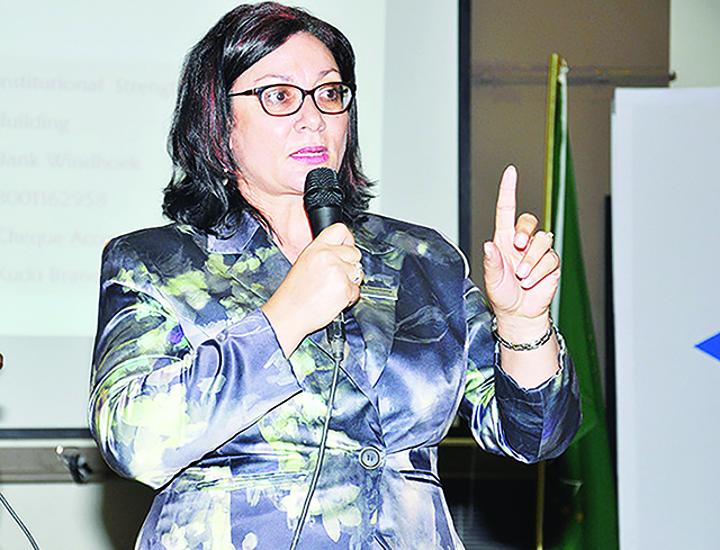Africa-Press – Namibia. MINISTRY of education executive director Sanet Steenkamp says 822 000 pupils have been enrolled in schools around the country this year, while 65 000 reside in hostels.
Steenkamp said the 65 000 pupils only constitute 8% of the pupils in government schools. Speaking to The Namibian on Friday, Steenkamp said the ministry spends N$500 million every financial year on hostel catering services.
She added that the government spends N$22 per child per day for community hostels. “The regions with the highest number of community hostels are Omaheke, Kunene and Otjozondjupa. Community hostels need to be built according to government hostel standards in order to qualify for a subsidy,” Steenkamp said.
She added that the government is in the process of making provisions for community hostels. “I strongly encourage those that are planning to build community hostels to visit their education directorates in order to build them according to government hostel standards,” she said.
Responding to a question regarding abandoned schools in some regions, Steenkamp said this was due to the underpopulation of pupils. “These are non-economical schools. These schools sometimes have fewer than 100 pupils because some might have moved from villages to towns and we have to close down that specific school,” she said.
The remaining pupils are moved to the nearest schools for placement and the abandoned schools were handed over to regional councils to determine what can be done with them, she added.
Speaking at the decentralisation and delegation of arts and culture functions of the Ministry of Education Arts and Culture to the regional councils last Friday at Otjiwarongo, education minister Anna Nghipondoka said 1 947 schools are operational countrywide.
She added that 237 hostels are functional with 17 special libraries in operation nationwide. Nghipondoka added that there are 66 public libraries that are in use, and 503 functional school libraries.
“Education regional offices and teachers’ resources centres have been delegated to regional councils,” Nghipondoka said.
She added that in 2015, the ministry was joined by the directorates of arts and culture to continue the same process to prepare for the delegation of these functions.
“Much to our delight, the functions of arts and culture were officially gazetted on 16 December 2019. Consultations and inductions on the functions to be delegated were made with the staff members and the regional councils from 15 to 19 November 2021,” she said.
Approval was granted by the Office of the Prime Minister on 20 January for 187 staff members to be seconded to the regional councils, Nghipondoka said.
Speaking at the same event, urban and rural development minister Erastus Uutoni said the functions of arts and culture that are being decentralised are very critical in the development of the country and people. He said the arts and culture sector offers many opportunities for society, as well as education, economic, social, health and well-being benefits.
Given the declining opportunities in sectors that were previously the main drivers of employment and growth, sectors such as arts and culture offer great potential and new opportunities for growth and recovery of the economy, he said.
“I call on regional governors and councils, with the continued support of the Ministry of Education, Arts and Culture to take on these critical functions and execute them in a manner that will nurture their full potential and their contribution to the enhancement of the betterment of our people and society,” Uutoni said.
For More News And Analysis About Namibia Follow Africa-Press






